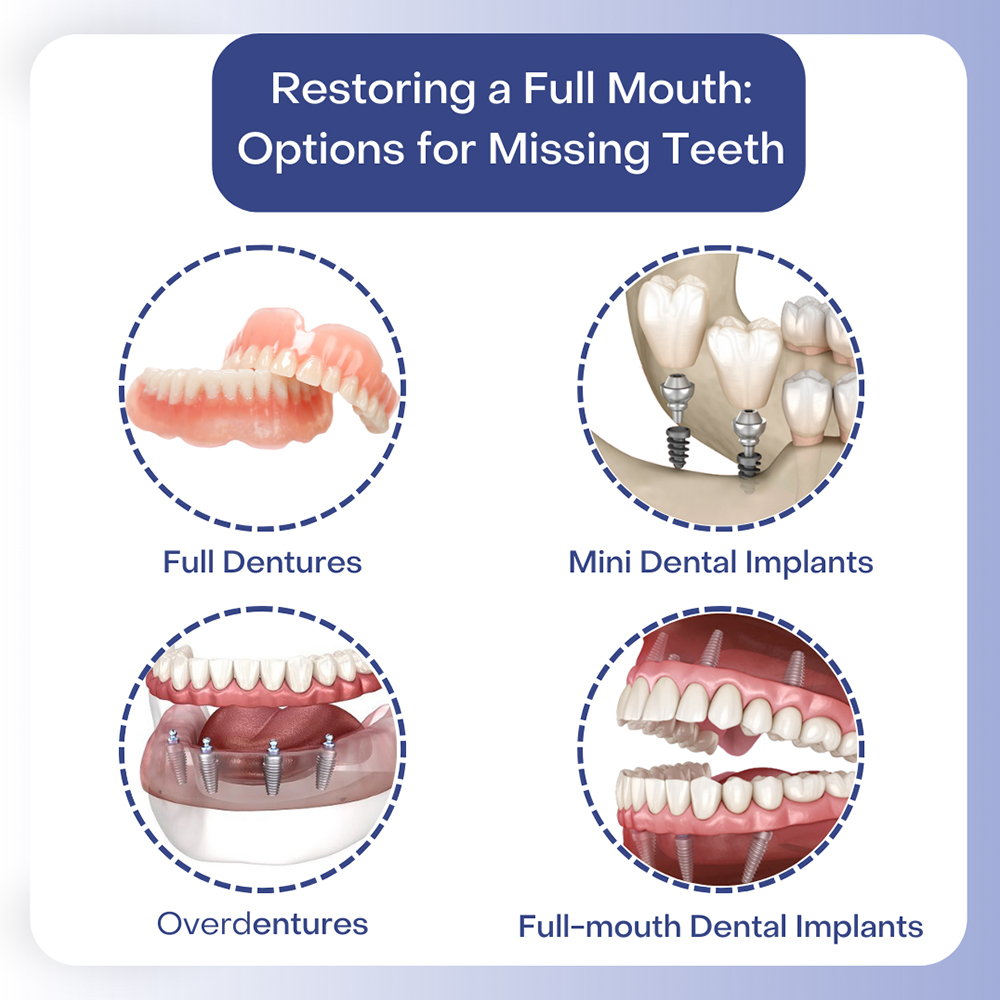Little Known Questions About Dental Sense.
Little Known Questions About Dental Sense.
Blog Article
Little Known Questions About Dental Sense.
Table of ContentsThe Ultimate Guide To Dental SenseFascination About Dental SenseSome Known Incorrect Statements About Dental Sense Indicators on Dental Sense You Should Know
are clinical gadgets operatively dental implanted into the jaw to bring back a person's capacity to chew or their look. They provide support for fabricated (fake) teeth, such as crowns, bridges, or dentures. When a tooth is shed due to injury or illness, a person can experience difficulties such as fast bone loss, defective speech, or modifications to chewing patterns that lead to pain.Dental dental implant systems consist of an oral implant body and dental implant joint and may additionally consist of an abutment fixation screw. Root canal procedure. The oral implant body is surgically inserted in the jawbone instead of the tooth's origin. The oral implant joint is generally connected to the implant body by the abutment addiction screw and extends with periodontals right into the mouth to sustain the affixed synthetic teeth
(https://blogfreely.net/dentalsense1/5eq6ue3fhs)Framework of The Dental Implant System picking oral implants, talk with your oral provider about the potential benefits and dangers, and whether you are a candidate for the procedure. Things to consider: Your overall wellness is an important consider determining whether you are a good prospect for dental implants, the length of time it will take to heal, and how much time the implant may stay in place.
Cigarette smoking may affect the healing procedure and decrease the long-term success of the implant. The recovery procedure for the dental implant body might take a number of months or longer, during which time you generally have a short-term abutment instead of the tooth. the oral implant procedure: Meticulously comply with the oral hygiene directions offered to you by your oral company.
The smart Trick of Dental Sense That Nobody is Talking About
Implant failing can cause the demand for another medical procedure to fix or replace the dental implant system. Recovers the capacity to eat Brings back cosmetic look Aids keep the jawbone from shrinking due to bone loss Maintains the wellness of the surrounding bone and gum tissues Assists keep adjacent (close-by) teeth stable Boosts high quality of life Damages to surrounding all-natural teeth throughout implant placement Injury to the surrounding tissues throughout surgery, such as sinus opening Injury during surgery (for example, fracture of bordering jawbone) Poor function, such as seeming like the teeth do not attack with each other normally A sensation that the tooth is loosened or turning in place arising from an abutment screw loosening up Implant body failing (looseness of the implant body) because of systemic infection, which might be more probable in individuals with unchecked diabetics issues as a result of neighborhood infection in bone and periodontals supporting the implant body because of postponed healing, which might be more probable in individuals who smoke Difficulty cleansing the gum tissues around the implant, causing poor oral hygiene Without treatment periodontal condition Post-surgical pins and needles due to nerve impingement or damage Always alert health care carriers and imaging professionals that you have oral implants before any type of magnetic vibration imaging (MRI) or x-ray treatments.
FDA is not knowledgeable about any kind of unfavorable events reported for MRI or x-ray treatments with oral implants. Oral implants systems are generally made from materials that comply with global agreement criteria of the International Company for Standardization (ISO) or ASTM International. These requirements have information of what makes a secure material.

An oral implant is a framework that changes a missing tooth. With screw-like devices, the surgeon inserts a dental implant right into the jawbone, and it works as an anchor for a man-made tooth, called a crown. A device called an abutment links the man-made tooth to the dental implant. The crown is tailor-made to fit the person's mouth and match the shade of their teeth.
How Dental Sense can Save You Time, Stress, and Money.
Some people are not eligible for oral implant surgical procedure. It is for dental doctors to run on people with: severe illnessuncontrollable metabolic diseasebone or soft cells illness or infectionIf these concerns are resolved, an individual can have the surgical procedure. In, oral surgeons refrain from operating on individuals with: If people with any one of the above go through dental implant surgery, there is a greater threat of the dental implant falling short.

Oral dental implant surgery is a customized process. It's not the very same for everybody. The complying with provides a basic review of what you can expect your dental practitioner, oral specialist, periodontist or prosthodontist to do: Position the implant operatively. Provide you time to recover. Attach the over at this website blog post and final crown, bridge or denture.
Next off, your specialist will thoroughly put the dental implant right into your jaw. If your implant is near the front of your mouth, your dentist will certainly make a temporary tooth for you to use up until you heal.
Getting The Dental Sense To Work
During the recovery stage, your jawbone should fuse to the dental implant. This procedure can take anywhere from 3 to 9 months.
When your implant heals, your dentist can connect the abutment (little connector blog post) and your last remediation (crown, bridge or denture). This usually takes regarding one hour to complete and may need a second small surgical procedure. You should not really feel any kind of pain throughout your oral implant procedure due to the fact that your service provider will certainly utilize medication to numb your periodontals.
Report this page